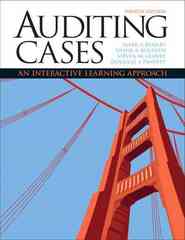Question
Econ - Unit 3 Questions for Heather McGhee Ted Talk: Racism Has a Cost For Everyone https://www.ted.com/talks/heather_c_mcghee_racism_has_a_cost_for_everyone?language=en Introduction : What does Heather McGhee do as
Econ - Unit 3
Questions for Heather McGhee Ted Talk: "Racism Has a Cost For Everyone"
https://www.ted.com/talks/heather_c_mcghee_racism_has_a_cost_for_everyone?language=en
Introduction:
- What does Heather McGhee do as an economist?
- What was the significance of Ms. McGhee's conversation with Gary from North Carolina?
- What is Ms. McGhee's hypothesis about racism and its economic impact, particularly on those, like Gary, who presumably benefit from privilege?
- What was her conclusion about the economic impact of racism?
Case Studies:
Oak Park Pool, Montgomery, Alabama
Ms. McGhee points to the lack of funding for "public goods" over the last few decades, as an example of bad policy making by state and federal governments. However, she argues that this wasn't always the case, and talks about the creation of the Oak Park Pool in Montgomery, Alabama in the 1940's.
- How was the Oak Park Pool funded?
- "Public Goods" are intended to be used by all citizens. Was this the case with the pool?
- How did the local government respond when a federal court ordered the pool to be desegregated?
- What other "public goods" were affected by whites' resistance to desegregation?
- Think about your answers to questions 7 and 8. Why do you think the public policy mentioned above would hurt whites as well as black citizens of Montgomery?
Subprime Home Loans and the Financial Crisis of 2008
Ms. McGhee shifts to the financial crisis of 2008, where risky home loans (mortgages) were one of the main causes of the crisis and subsequently at the core of policies created to avoid a future crisis.
- What was the "common misperception" of the people who were using subprime mortgages to purchase a home?
- Why did this "stereotype" keep policymakers from regulating financial firms from offering subprime loans. More importantly, how did this unwillingness to act against subprime loans ultimately lead to the financial crisis? (This point is subtle, so you might have to rewatch this section.)
- List a few of the examples Ms. McGhee gives to show the economic impact of the financial crisis.
Auto workers trying to unionize in Mississippi
- In what ways might joining a union help all the workers in the auto plant?
- Explain how racism ultimately doomed the union vote?
Transformation of Lewiston, Maine (This is the story of demographics)
- Briefly describe the demographics of Maine.
- How would you describe the demographics of Lewiston?
- How are the demographics of the US changing?
- In what ways does the story of the Franco Heritage Center in particular and Lewiston in general, prove Ms. McGhee's point that we are better off, at least economically, when we realize "our fates are linked?"
Step by Step Solution
There are 3 Steps involved in it
Step: 1

Get Instant Access to Expert-Tailored Solutions
See step-by-step solutions with expert insights and AI powered tools for academic success
Step: 2

Step: 3

Ace Your Homework with AI
Get the answers you need in no time with our AI-driven, step-by-step assistance
Get Started


